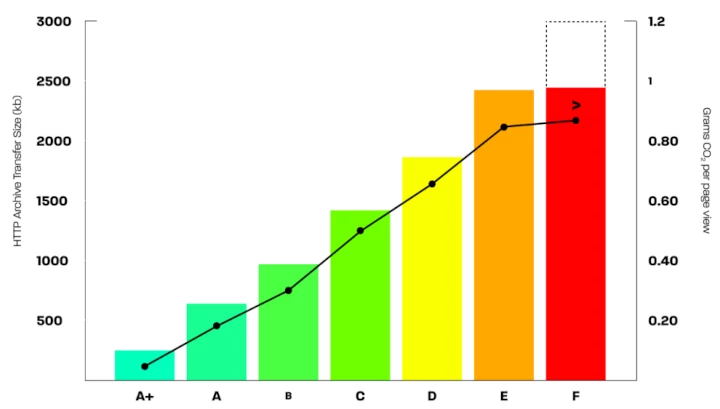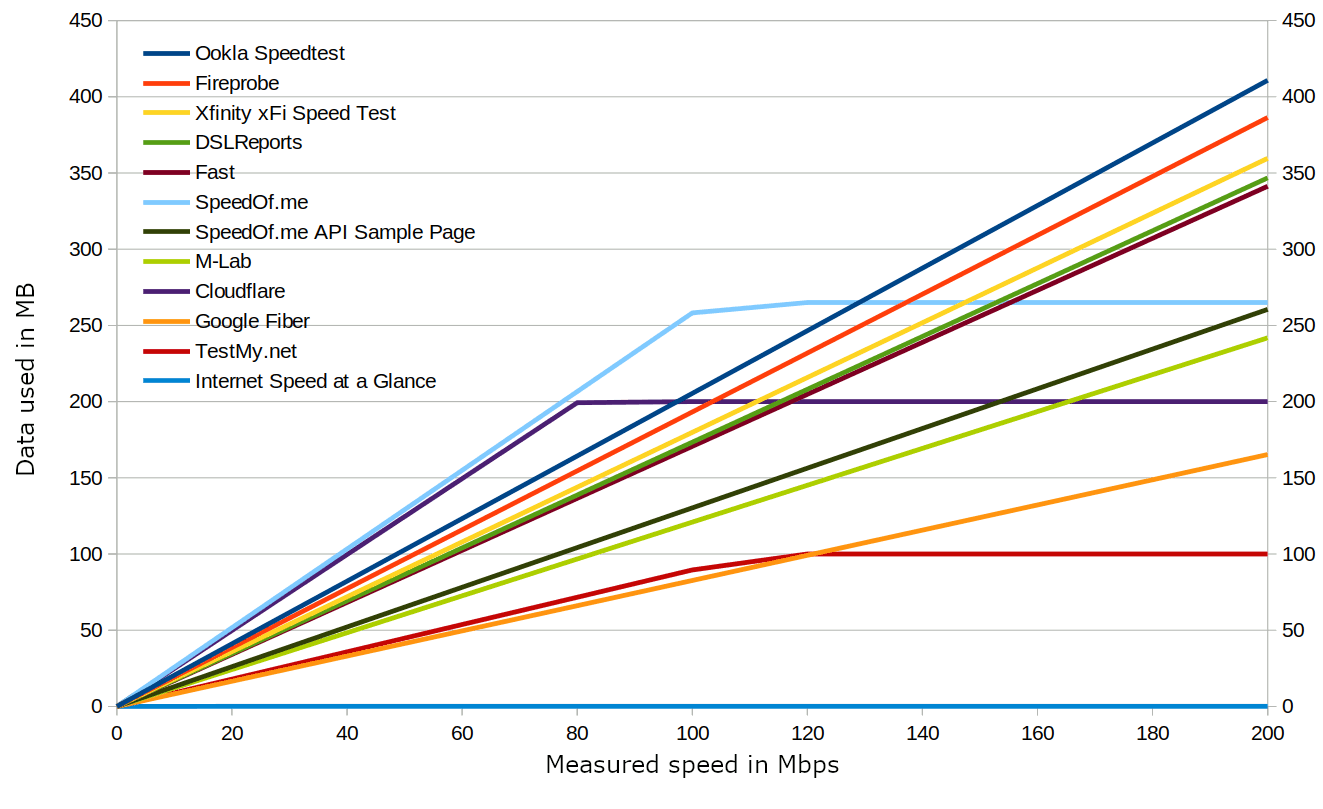TL;DR
Speed test loads a lot of data to measure your download speed. Due to the widespread use of speed tests, they contribute significantly to global CO2 emissions. It is therefore preferable not to use a speed test if it is not really necessary. Should you use a speed test? Then use Internet Speed at a Glance (CO2 label A+), Down at a Glance (CO2 label A+), TestMy.net (CO2 label A) or Google Fiber (CO2 label B).
These speed tests take the least time (and therefore data) to measure the download speed. As a result, they have the smallest ecological footprint.
Note that we have created a list of data efficient speed tests.
Content
- Why the carbon footprint of a website matters
- How is the carbon footprint of a webpage calculated
- How much data does a speed test use?
- New labels
Why the carbon footprint of a website matters
Web pages and tools that you use on the Internet cost electricity and therefore have a carbon footprint. According to the IPCC, reducing CO2 emissions is critical for your future.
One of the most popular tools on the Internet are speed tests. Speed tests are that popular that when you Google for "speed test", Google gives you the option to start a Measurement Lab (M-Lab) speed test directly.
Because a speed test loads extra data to measure your download speed, a speed test has a huge impact on the worldwide CO2 emission. Millions of tons are involved every day.
How is the carbon footprint of a webpage calculated
At the page Introducing Digital Carbon Ratings you will find the graph below:

Based on this graph above it is clear that a page view of 2.5 MB leads to 1 gram of CO2 emissions.
Note that websites like Website Carbon Calculator and Carbon Calculator calculate online the CO2 load of a web page.
How much data does a speed test use?
The graph below is from the How much data does a speed test use test.

This graph makes clear that running a speed test generates a lot of CO2.
New labels
Based on the same scale as used by Sustainable Webdesign for the digital carbon ratings, we designed the following scales for labelling speed tests. For this scale we used the results of the earlier mentioned How much data does a speed test use test.
When we state that the average of the-max-of-MBs-used-for-download-and-upload-per-Mbps is 50% (is label F) then the following CO2 labels apply:







- Astound
- Broadband Speed Checker
- Cloudflare
- Comparitech
- Fast
- Fireprobe
- OpenSpeedTest™
- Ookla Speedtest
- Samknows
- Speedcheck™
- SpeedOf.me
- Xfinity Speed Test
Note that speed tests like Speedtest4.php and Toast are not mentioned in this list because they don't give meaningful results.